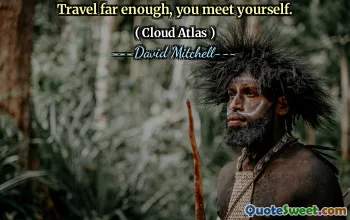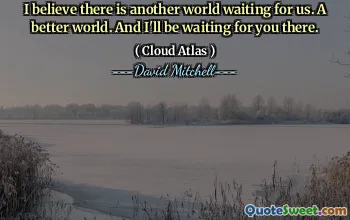
Wars do not combust without warning. They begin as little fires over the horizon. Wars approach. A wise man watches for the smoke, and prepares to vacate the neighborhood, just like Ayrs and Jocasta. My worry is that the next war will be so big, nowhere with a decent restaurant will be left untouched.
The quote illustrates how wars develop gradually, often starting as small conflicts that escalate into larger confrontations. It emphasizes the importance of vigilance and foresight, suggesting that individuals should be aware of the early signs of impending conflict and act accordingly by distancing themselves from potential danger. A wise person, represented by characters Ayrs and Jocasta, prepares for the worst when these signs become apparent.
Additionally, the quote conveys a sense of foreboding about future wars, implying that the scale of the next conflict could affect even the most civilized places, like those with good dining options. This notion reflects a fear that no safe haven will remain, underscoring the pervasive threat of war and the need for awareness and proactive measures in the face of looming dangers.









